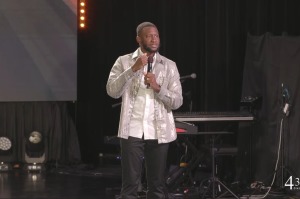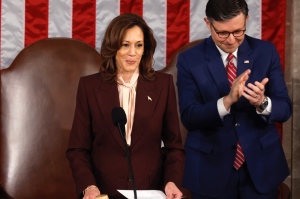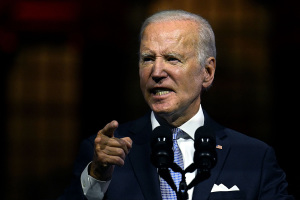Americans' preference for large families hits highest level in over 50 years: Gallup

More Americans say the ideal family size consists of three children, according to a new poll that found younger Americans, Catholics, churchgoers and women are among those most likely to prefer large families.
Gallup recently released the results of two separate surveys examining Americans’ views as to what constitutes the ideal family size. The polls, conducted from June 1-22 and July 3-27, found a roughly equal level of support for large and small families.
The survey asked respondents, “What do you think is the ideal number of children for a family to have?” A plurality of those surveyed (44%) suggested that the ideal family consisted of two children. An additional 3% identified the ideal family as featuring just one child, while 2% believed that the ideal family was one with no children at all.
The share of Americans who preferred small families, meaning those who think an ideal family should only have one or two children, added up to 47%. On the other hand, the total share of Americans who favored larger families amounted to 45%.
Specifically, 29% thought the ideal family size should include three children, and 12% defined the ideal family as having four children. The share of respondents who preferred family sizes of five and six or more children was 2% in each case.
“Americans’ belief that the ideal family size includes three or more children has been rising steadily in recent years, currently up 4 percentage points from the previous reading in 2018 to its highest point since 1971,” wrote Gallup’s Megan Brenan in an analysis of the results. “The latest measure is one of the few instances when preferences for smaller families (of one or two children) and larger families (of three or more children) are statistically tied in Gallup’s trend.”
In 1971, 52% of respondents asked by Gallup to identify the ideal family size expressed support for three or more children. Since then, the percentage of Americans favoring small families has consistently exceeded the share of Americans who favor large families.
Broken down by demographic subgroup, majorities of black adults (57%), Catholics (56%), those who attend church weekly (54%), Hispanic adults (53%), Americans between the ages of 18 and 29 (52%) and those who make less than $40,000 a year (51%) expressed a preference for families with three or more children. Half of Republicans and Republican-leaning voters (50%) and those who attend church weekly or monthly said the same.
Additionally, pluralities of Americans between 50 and 64 (48%) and women (46%) favored larger families. Meanwhile, majorities of those who do not identify with a religion (58%), Democrats and Democrat-leaning voters (53%), Americans who seldom or never attend church services (52%), and white adults (51%) thought that the ideal number of children for a family to have was two or less.
Half of Americans who make between $40,000 and $100,000 and half of respondents who make $100,000 or more preferred smaller families, as did half of those between the ages of 30 and 49. A plurality of men (49%) and those aged 65 and older (49%) identified families with one or two children as the ideal size.
When asked about their parental status, the overwhelming majority of respondents (69%) said they were parents, while 15% of those between 18 and 40 reported that they did not have children but still wanted to. Six percent of respondents aged 41 and older did not have children but wished they had, while the remaining 8% told pollsters they “do not want children at all.”
A majority of those between 18 and 29 (63%) said they do not have children but still want to, while 21% already have children. The remaining 16% do not want children at all. Seventy-four percent of respondents between the ages of 30 and 49 (74%) have children, while 8% do not want them. Eleven percent of those between the ages of 30 and 40 do not have children but still want to, and 5% of respondents between the ages of 41 and 49 did not have children but wish they had.
The overwhelming majority of Americans between the ages of 50 and 64 (82%) and those 65 and older (88%) already have children, while 11% of Americans aged 50-64 and 6% of the elderly do not have children but wish they had. Small shares of Americans between 50 and 64 (7%) and the elderly (5%) said they did not want children.
Ryan Foley is a reporter for The Christian Post. He can be reached at: ryan.foley@christianpost.com





























